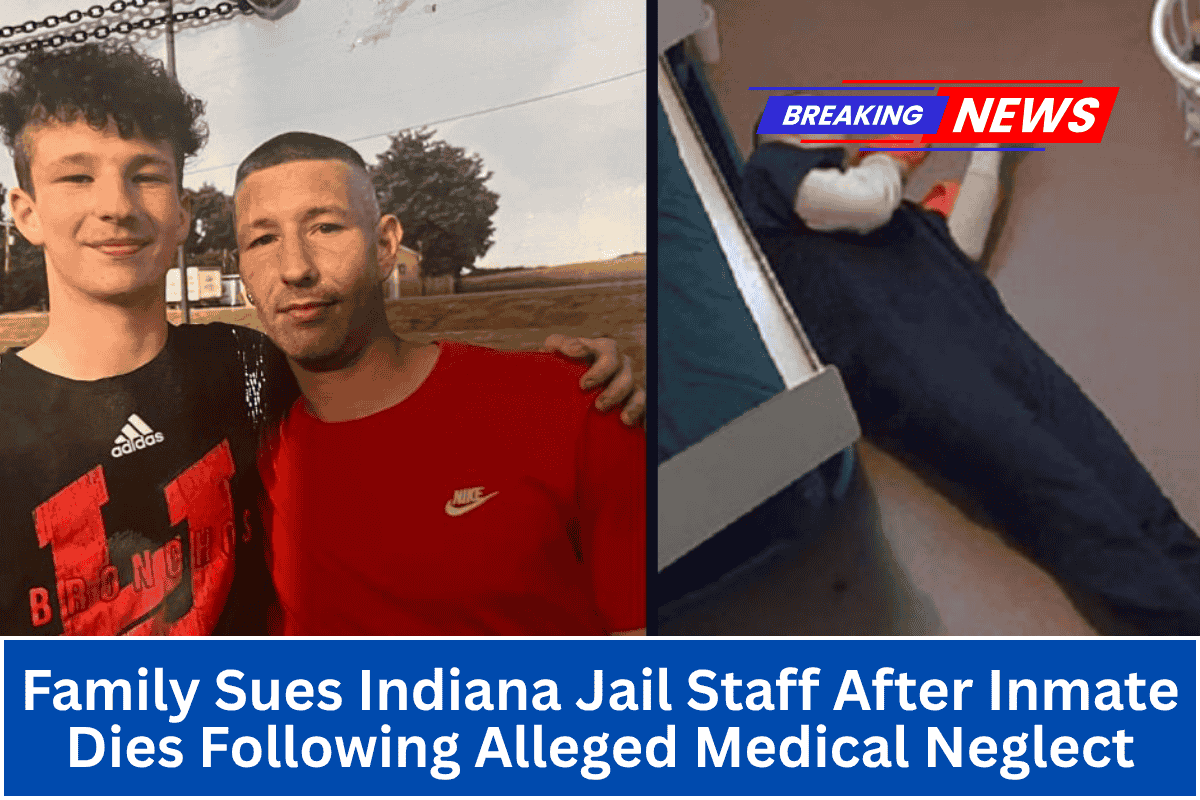The family of Troy Dean Pownell, a 38-year-old man who died in a Tippecanoe County jail, has filed a federal lawsuit against the jail and its staff, accusing them of deliberate indifference and negligence in the treatment of Pownell’s medical condition.
The lawsuit, filed by Pownell’s 18-year-old son, Troy Allen Pownell, claims that jail staff ignored repeated pleas for medical help as his condition worsened, ultimately leading to his death from sepsis caused by a perforated ulcer.
The Incident Leading to Pownell’s Death
Troy Dean Pownell was arrested on April 2, 2024, for missing a court date related to his drug-related case. According to the lawsuit, he initially reported feeling fine upon entering the jail but soon began experiencing physical discomfort.
His health deteriorated over the next few days, with symptoms such as dry heaving and severe abdominal pain. On April 7, 2024, he began complaining of “severe abdominal pain,” but his repeated requests for medical assistance were allegedly met with delays and inadequate care.
The lawsuit claims that when Pownell’s condition worsened, a nurse found him lying on the floor of his cell, pale and sweating excessively. Despite Pownell describing severe abdominal pain and mentioning recent heroin use, the nurse dismissed his symptoms as drug withdrawal.
His medical treatment focused on electrolyte replenishment, even though withdrawal symptoms typically peak one to three days after the last drug use. Pownell’s peak symptoms, according to his lawyers, didn’t start until nearly his sixth day in jail.
Alleged Neglect and Dismissive Comments from Jail Staff
As Pownell’s condition worsened, he repeatedly asked to go to the hospital, but his pleas were reportedly ignored. One nurse allegedly told him, “You’re not getting a free ride to the hospital today.”
According to the lawsuit, when Pownell pushed the call button for help, he was told it was “for emergencies only.” In a particularly disturbing moment, a guard allegedly told Pownell to “stop being a p—y.”
Despite exhibiting signs of a serious medical condition, such as a perforated ulcer, Pownell’s condition continued to deteriorate, and nurses allegedly continued to treat him as though he were suffering from drug withdrawal.
His X-ray results, which showed a “nonobstructive abdominal bowel gas pattern,” came back around 5:30 p.m. on April 8, but by that time, Pownell was curled up in a ball, vomiting, and in extreme pain.
Delayed Response and Pownell’s Death
The lawsuit claims that it took over an hour before anyone responded to the emergency call made by Pownell’s cellmate around 6 p.m. By the time medical staff arrived, Pownell had begun having a seizure, and was “cold to the touch” with no pulse. Despite being rushed to the hospital, it was too late—doctors pronounced him dead shortly afterward.
A coroner later determined that Pownell’s cause of death was sepsis caused by a “perforated duodenal ulcer, with cirrhosis of the liver contributing.”
Pownell’s family is devastated, and his son, Troy Allen Pownell, expressed his grief, stating, “I miss my dad every day and just wish they would have helped him when it was so obvious that he needed to go to the hospital.”
Legal Action and Family’s Statement
The lawsuit seeks justice for the wrongful death of Troy Dean Pownell, accusing the jail and its staff of failing to provide adequate medical care and ignoring the signs of a serious medical emergency.
The family’s attorneys argue that Pownell’s repeated pleas for help should have been taken seriously, and that his death could have been prevented with prompt medical attention.
Through the lawsuit, the family hopes to bring about change in how individuals with medical conditions are treated in jails. “We hope this case helps change how people with medical problems are treated when they are in jail,” said Troy Allen Pownell, reflecting on the painful loss of his father.
Troy Dean Pownell’s tragic death highlights the critical need for proper medical care in correctional facilities. The family’s lawsuit is a call for accountability and reform in the treatment of inmates, particularly those suffering from serious medical conditions.
As the case moves forward, it will serve as a reminder of the importance of ensuring inmates receive the care and attention they need to survive, especially when their lives are at risk.






